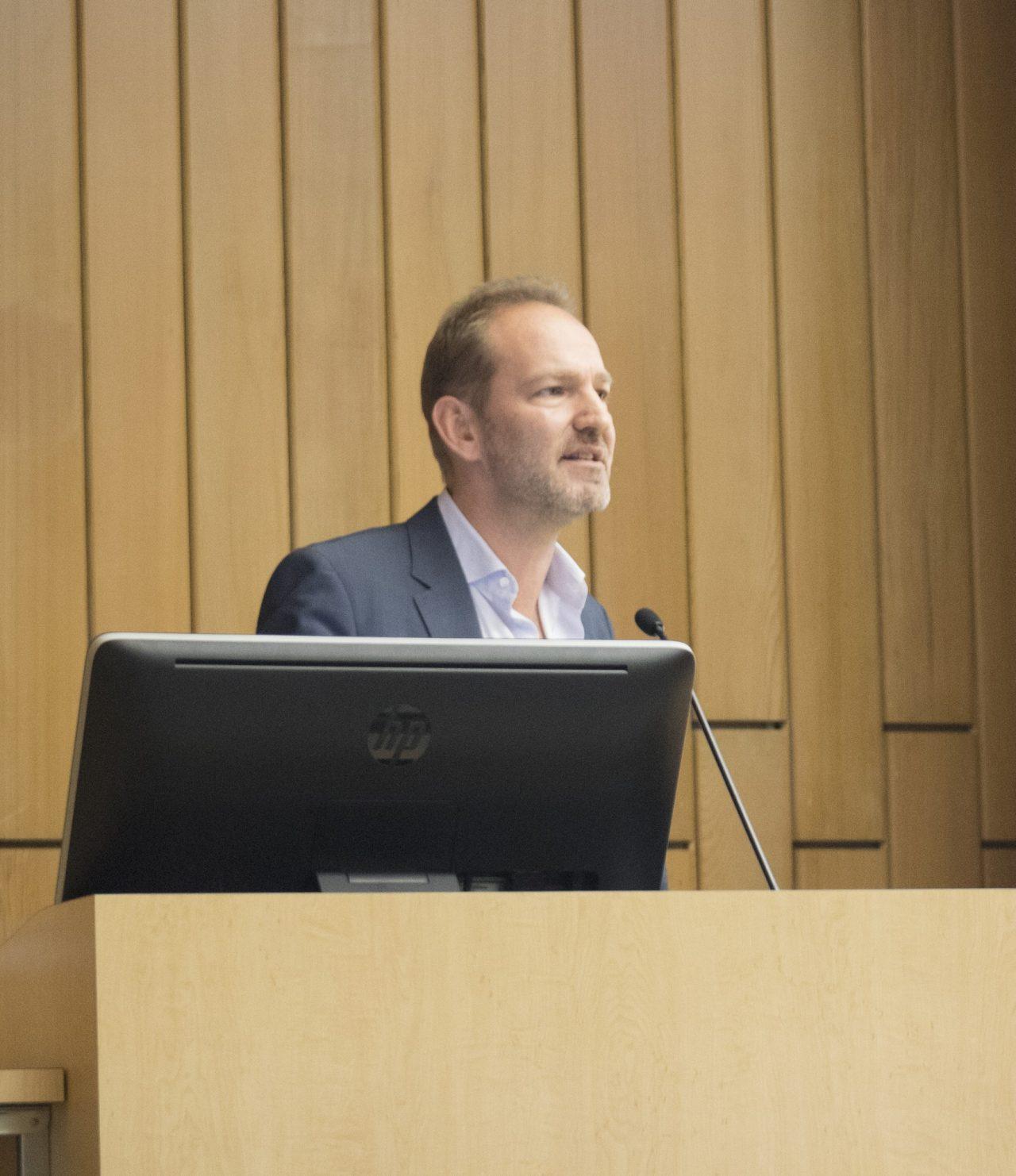Photo by Matthew Claybrook
William Egginton, director of the Alexander Grass Humanities Institute at Johns Hopkins University, gave a lecture entitled “How Education Went from the Great Equalizer to the Great Divider, and What We Can Do to Fix it” on Tuesday, Feb. 5. The lecture took place in the Chapman auditorium, and about 80 people were in attendance.
The lecture was sponsored by the Humanities Collective, which chose Egginton because his book is being taught in an English seminar about the humanities and democracy, ENGL 4423.
“We’re reading his book in that seminar,” said Michael Fischer, professor of English and instructor of the course. “The class is about current challenges to American democracy and some of the ways that the humanities can help us meet those challenges. We’ve been discussing polarization as one of the major challenges to American democracy. Why I chose the book is that he argues that liberal arts education, the humanities included, can be a factor in rebuilding community.”
During his lecture, Egginton spoke about the socially and economically divisive nature of today’s education system. Egginton argued that schools are generally underfunded and that education can perpetuate the splintering of communities. Egginton called for full funding for public education and community colleges as part of the solution to these problems, along with listening to other viewpoints and voting for political change.
Senior Brian Holmes attended the lecture because he had an interest in the topic but didn’t feel that the solutions Egginton offered were sufficient.
“I have a genuine interest in the economic system as a whole, but mainly the system in underfunded, underserved communities, just because of where I grew up,” Holmes, a McAllen native, said. “Just these communities that are sort of outliers, like where I’m from in the valley in south Texas, that really don’t even get affected. I saw the title talking about education as the great equalizer and sort of assuming that there is this promised solution that’s going to come out of this talk.”
During the lecture, Egginton argued that college can worsen inequality through “economic compression” because students have to already be part of a certain class to get into certain schools, “geographic compression” because students may not want to return to their original communities after going to college and “romantic compression” because people tend to marry within their socioeconomic status. Holmes felt that the idea of geographic compression isn’t relevant in some situations.
“When you grow up in the valley, all you hear from your parents is ‘get out and don’t come back,’ ” Holmes said. “He talked about that being divisive as well. He talked about geographic compression, well it’s not even geographic compression once you get out and you don’t want to go back. Some trickle down policy isn’t going to change a community’s entire outlook. That’s why I wasn’t really fond of his solution.”
Another point that Egginton brought up was the privatization of public schools and how public schools are becoming more like private schools because of who can afford to live in certain areas. Benjamin Adams, first-year, found this part of the lecture especially interesting.
“Being a freshman and just having gotten out of a public high school, it deeply annoyed me not having the same opportunities that other kids had,” Adams said. “And it also morally gnawed at me having more opportunities than most of the kids in my school, from a socioeconomic stance.”
Adams felt that Egginton did a good job of presenting his argument.
“I think it was a start of a good debate,” Adams said. “It brought to light issues that I wouldn’t even think of, because I think public versus private, I don’t think about the privatization of public high school just through concentrated areas of wealth. I can think of a number of public high schools that fit that description, especially in the Austin area, which has recently been highly gentrified. These kids are going to public high schools that operate through the American public education system, but the wealth is crazy.”
Egginton’s recent book, “The Splintering of the American Mind,” is available for purchase online and in stores.







